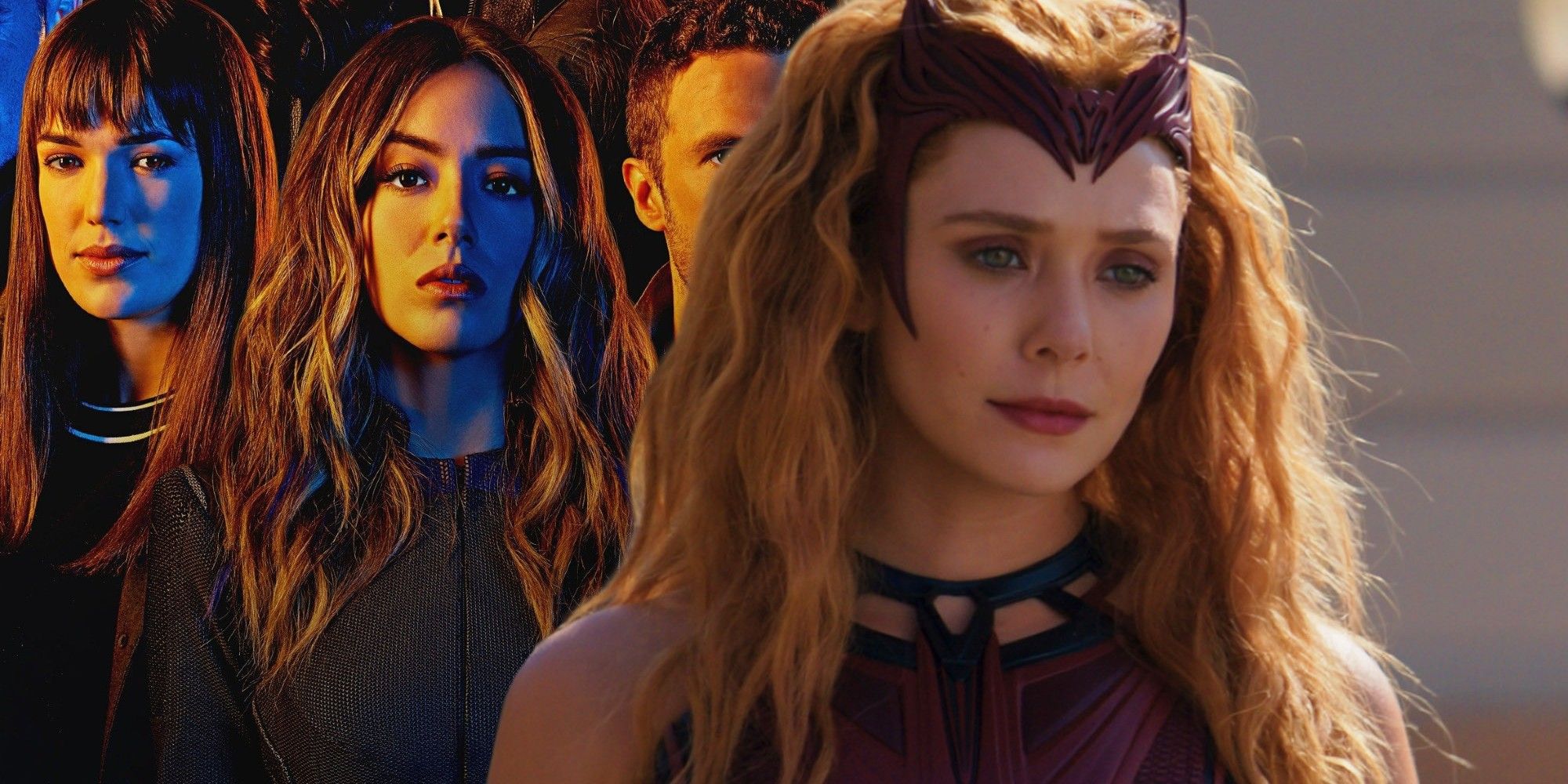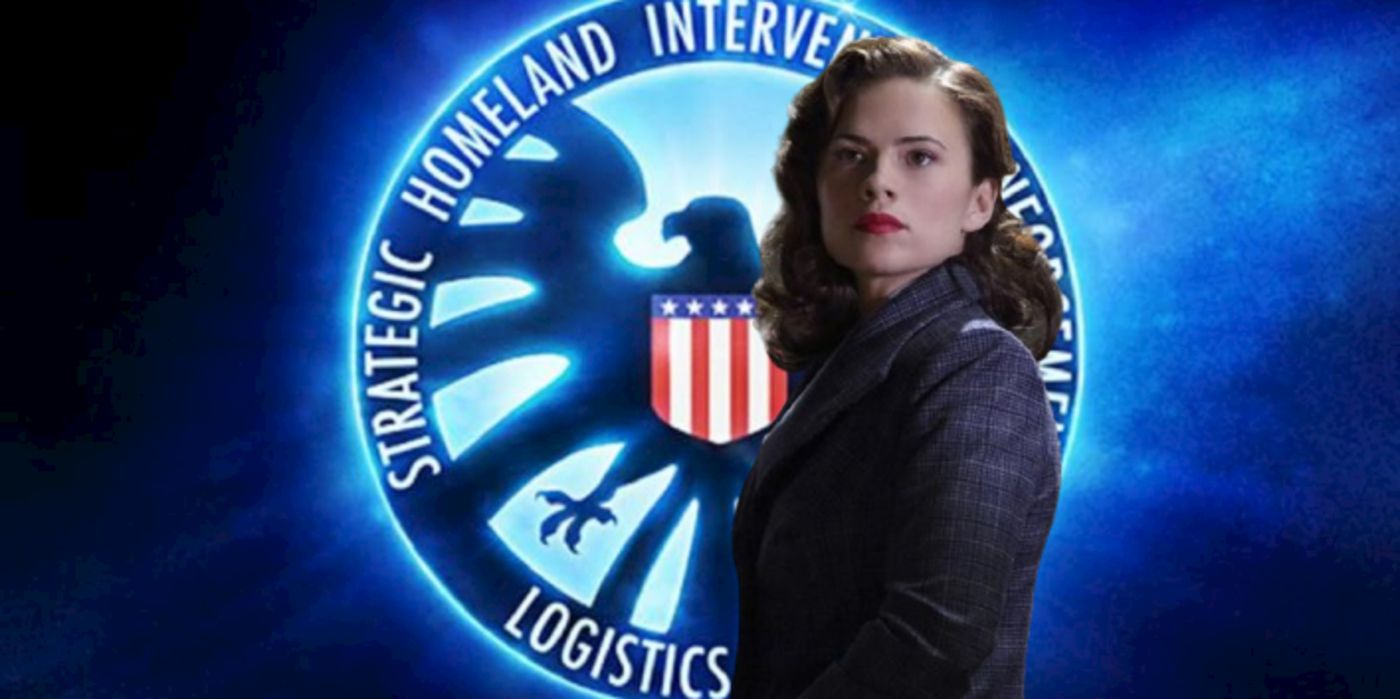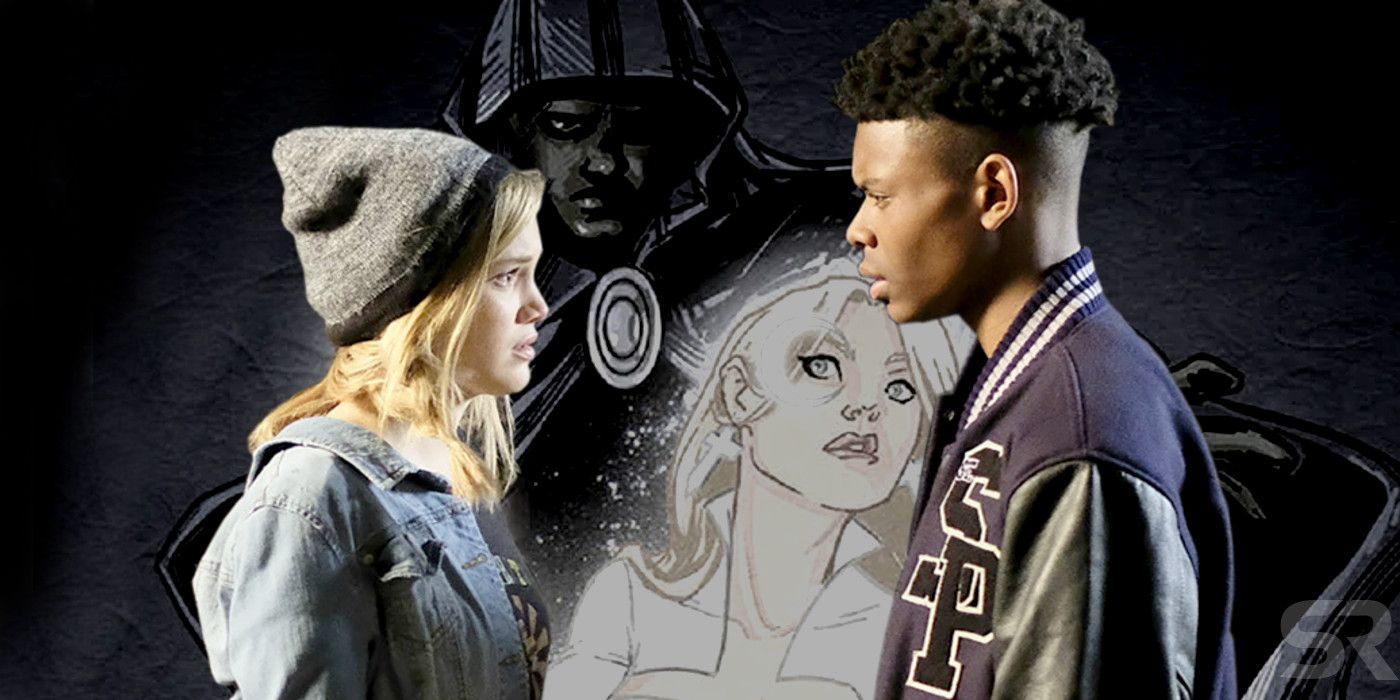The old Marvel Television shows aren’t ever going to be restored to canon in the Marvel Cinematic Universe – regardless of fan complaints. When the MCU launched in 2008, the promise was that everything would be connected. In 2013, Marvel Televisions first live-action TV show appeared to be an extension of that promise, with Agents of SHIELD tying into the MCU’s broader narrative – especially in its first season. But as the years passed, it unfortunately became clear those connections would only ever be one-way. Now, Marvel Television is defunct, and it’s generally becoming clear all their old TV shows should really be considered non-canon.
Understandably, it’s a huge disappointment to a devoted fanbase. This has most recently manifested in a passionate appeal by the team who run the MCU Wiki [via Twitter], in which they ask Marvel Studios to clarify the shows are canon, and ensure nothing is done to damage them. “I, we, have put so much devotion emotionally into these shows as part of the MCU,” they write, “watching the shows and experiencing and devoting myself to that world, in return receiving one of the few sources of joy in my life as I shared in this world growing and progressing in all its dimensions. It would really hurt to find out the devotion was wasted, misled, wrong all along; this rare joyful thing in my life a falsehood.” The letter is a heart-wrenching one from fans who absolutely loved TV shows like Agents of SHIELD, and were willing to accept even poorer products such as Inhumans and Iron Fist because they understood the value of the shared universe.
Is there any chance such appeals will work? Or has a line been drawn in the sand, one that effectively erases all the old Marvel Television shows from continuity? Sadly, the evidence is building that the latter is the case. Right now, it really doesn’t look as though these Marvel Television TV series should be considered part of the MCU anymore.
Marvel TV Shows Don’t Fit MCU Canon Anymore

The first few seasons of Marvel’s Agents of SHIELD rejoiced in their connectivity, with major arcs orbiting around the events of Captain America: The Winter Soldier and Avengers: Age of Ultron. Unfortunately the latter proved rather more contentious than anybody had expected, because director Joss Whedon chose not to make an explicit nod to Agents of SHIELD in the film, believing it would be confusing for viewers who were only familiar with the movies. “As far as I’m concerned, in this movie, Coulson’s dead,” Whedon insisted. “If you come back in the sequel and say Coulson’s alive, it’s like putting f***ing John Gielgud in the sequel to ‘Arthur.’ It mattered that he’s gone. It’s a different world now. And you have to run with that.” Shortly after this, a corporate restructure at Marvel – forced by Disney due to the souring relationship between Kevin Feige and Marvel’s reclusive then-CEO Ike Perlmutter – led to the film studio being separated from the rest of Marvel Entertainment. The explicit references pretty much ended, with Agents of SHIELD settling for thematic nods instead, such as the use of Ghost Rider when Doctor Strange was about to hit cinemas.
The lack of any direct channel of communication between Marvel Studios and Marvel Television would ultimately undermine Agents of SHIELD when the series attempted to tie in to Avengers: Infinity War as part of the MCU’s 10-year anniversary celebrations. There is a sense in which Thanos was the true villain of season 5, because those events were driven by an alien conspiracy who were attempting to take advantage of the Mad Titan’s impending attack upon Earth; but, although season 5 ended with explicit nods to Thanos’ arrival in New York, the show never moved on to deal with the consequences of his erasing half the living creatures in the universe. Agents of SHIELD seasons 6 and 7 ignored Thanos snap, with Marvel Television’s Jeph Loeb explaining why. “Just looking at it from a very practical place, which is, what the world looked like post-snap, [it] was not something we had seen yet,” he explained. “We were already shooting.” And so Marvel waved the problem away by suggesting all the TV shows were pre-snap, an argument that just didn’t fit with the timeline.
Marvel Television has since been wound down, in part because it was impossible for them to compete with the high-budget TV shows streaming on Disney+. Since then, it has become abundantly clear Marvel Studios has no interest in keeping an eye on elements of canon from the old TV show; WandaVision‘s Darkhold had a different design to Agents of SHIELD and shared none of its history, while Loki avoided any reference to Coulson’s resurrections. The most shocking, and frankly counterintuitive, was the decision not to reference the Agent Carter TV series in a Marvel Legends video, given that series is entirely contained on Disney+ and promoting it in that manner could have encouraged further engagement with the streaming service. Meanwhile, the addition of a chronological order on Disney+ has added more problems, because the chronology broke Agents of SHIELD‘s timeline by switching some of the films around.
Marvel Studios president Kevin Feige is frequently asked questions about canonicity, but he refuses to be drawn, presumably aware making any views public could potentially be very divisive indeed (James Gunn is not so reluctant, insisting on social media that no pre-WandaVision TV shows are connected). But it’s striking that the MCU doesn’t exactly seem to be paying much attention to what has gone before; Marvel’s What If…? has drawn on many aspects of the wider canon, even explicitly confirming tie-in comics such as Fury’s Big Week, but it notably hasn’t done so for anything made by Marvel Television. There’s a sense in which this is frankly even worse than making an official statement, because when fans speak of “canon,” what they are really meaning is that they want the things they have loved to matter – to “count” for something in the broader narrative. But that certainly doesn’t seem to be the case for Marvel Television products and the MCU.
The Arguments For Marvel TV Shows Being Canon

The fan-petition does attempt to argue the shows were, and should still be, considered canon. The writers point to many older quotes that suggest Agents of SHIELD was the first MCU TV series, not WandaVision, and that the TV shows flesh out the stories told on the big screen. But, at heart, their plea is an emotional one, driven by the years of investment they have made in the shared universe as a whole. In their view, wiping the old Marvel Television shows from canon would be akin to declaring, 29 seasons into a series, that a massive amount of what preceded it was all just a dream; in narrative terms, such an approach would be deeply damaging to the entire model the MCU operates on.
One of the most important arguments in the petition essentially boils down to the fact Marvel Television was better than many thought, and its strengths should not be overlooked. It was particularly strong in terms of diversity and representation, frankly putting Marvel Studios to shame; Marvel’s first gay, Asian, and Latina superheroes all made their debuts in Agents of SHIELD, where Chloe Bennet starred as the Asian-American hero Quake, Runaways was unafraid to celebrate young lesbian superheroes, both Luke Cage and Cloak & Dagger handled issues of racial inequality remarkably well. Erasing these numerous TV series from canon effectively wipes out a lot of diversity in the MCU at a stroke, which is particularly troubling.
Why The MCU Won’t Make Older Marvel TV Shows Canon Again

Ultimately, there are sadly several reasons Marvel Studios is unlikely to respond to these appeals by making the older Marvel TV shows matter again – by not only declaring them canon, but building upon their concepts and lore. The core issue is that the MCU is the product of a singular vision, with Kevin Feige as the architect of the film franchise’s blockbuster success, as was recognized in 2015 when the studio was pulled out of the wider Marvel Entertainment group and he became president. In contrast, the Marvel Television shows were nothing to do with Feige, and there don’t even seem to have been good communication channels after Marvel’s restructure in 2015. As good as Agents of SHIELD, Daredevil, Cloak & Dagger, Runaways, and so on may have been, they do not represent Feige’s vision. They don’t fit.
It doesn’t help that, between 2013 and 2020, there were so many episodes of Marvel TV shows. Marvel like to give their writers and directors a lot of freedom when they’re producing content, and already this poses problems given the sheer amount of content that is officially canon; they’re not going to expect someone to check out multiple seasons of a TV series as well as the films just in order to ensure they get plot-points right. WandaVision director Matt Shakman illustrated this when he was asked about WandaVision‘s Darkhold, which was very different to the Book of Sins seen in Agents of SHIELD. “We didn’t look at the other Darkholds that had been designed,” he observed. “I don’t know exactly how it was used in those other shows, because I wasn’t a regular viewer, but the Darkhold has a comics origin. Its mythology will continue to be developed.” In truth, Marvel don’t actually seem especially interested in micro-level continuity to the level the fans often are in the first place, so it’s not especially surprising they’re not referencing the TV shows.
Ironically, though, the question of canonicity may not be quite as important as some fans believe. Agents of SHIELD was not good because it was part of the MCU; it was good because it was lovingly made, by a tremendous team, and it featured skilled actors who grew into their roles as the show went on. Indeed, by the time it ended, Agents of SHIELD‘s distance from the MCU was its strength, because it had built up its own lore and mythology, covering everything from time-travel rules (better and more consistently formulated than Avengers: Endgame) to Inhumans, from Kree Monoliths to alien races. This truth is even more apparent with other Marvel Television shows, that never explicitly attempted to tie in to the films in the first place; Daredevil isn’t one of the best superhero TV shows made in the last decade simply because it happens in the same world as Iron Man and The Avengers, but because it was well-made in its own right. Canonicity does not equal quality, and a show does not have to be canon to “count.” The Marvel Television shows had a profound effect on popular culture, meaning many of their concepts and characters will surely be revisited in the future, and if Marvel Studios do “soft reboots” they may well bring back celebrated actors like Charlie Cox, Chloe Bennet, or Vincent d’Onofrio. This legacy, more than anything else, will demonstrate that these shows matter – whether they are part of the MCU or not.
Key Release Dates

Eternals
Release Date:2021-11-05
Doctor Strange In the Multiverse of Madness
Release Date:2022-05-06
Thor: Love and Thunder
Release Date:2022-07-08
Black Panther: Wakanda Forever
Release Date:2022-11-11captain marvel 2
Release Date:2023-07-28
Ant-Man and the Wasp: Quantumania
Release Date:2023-02-17
Guardians of the Galaxy Vol. 3
Release Date:2023-05-05




